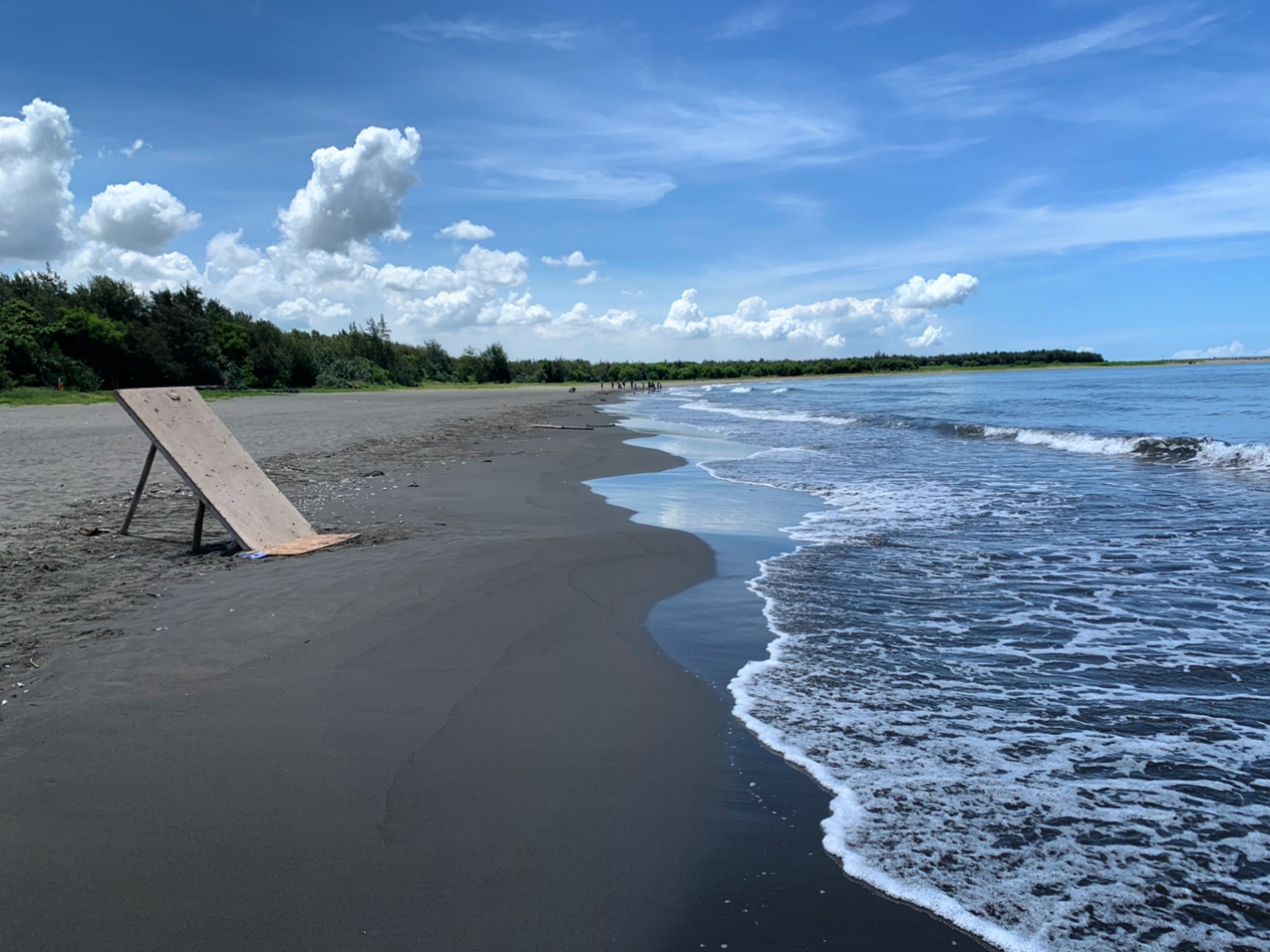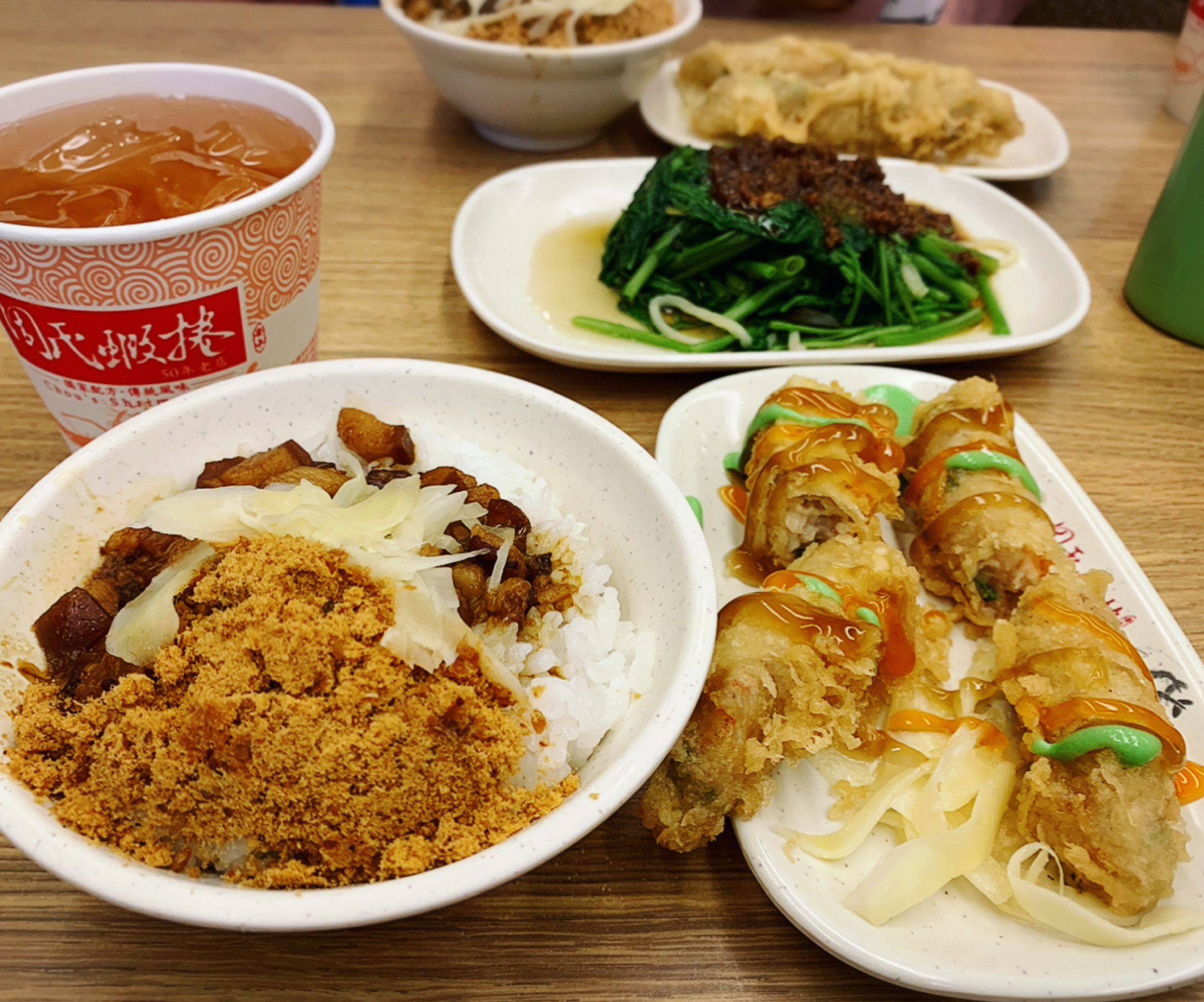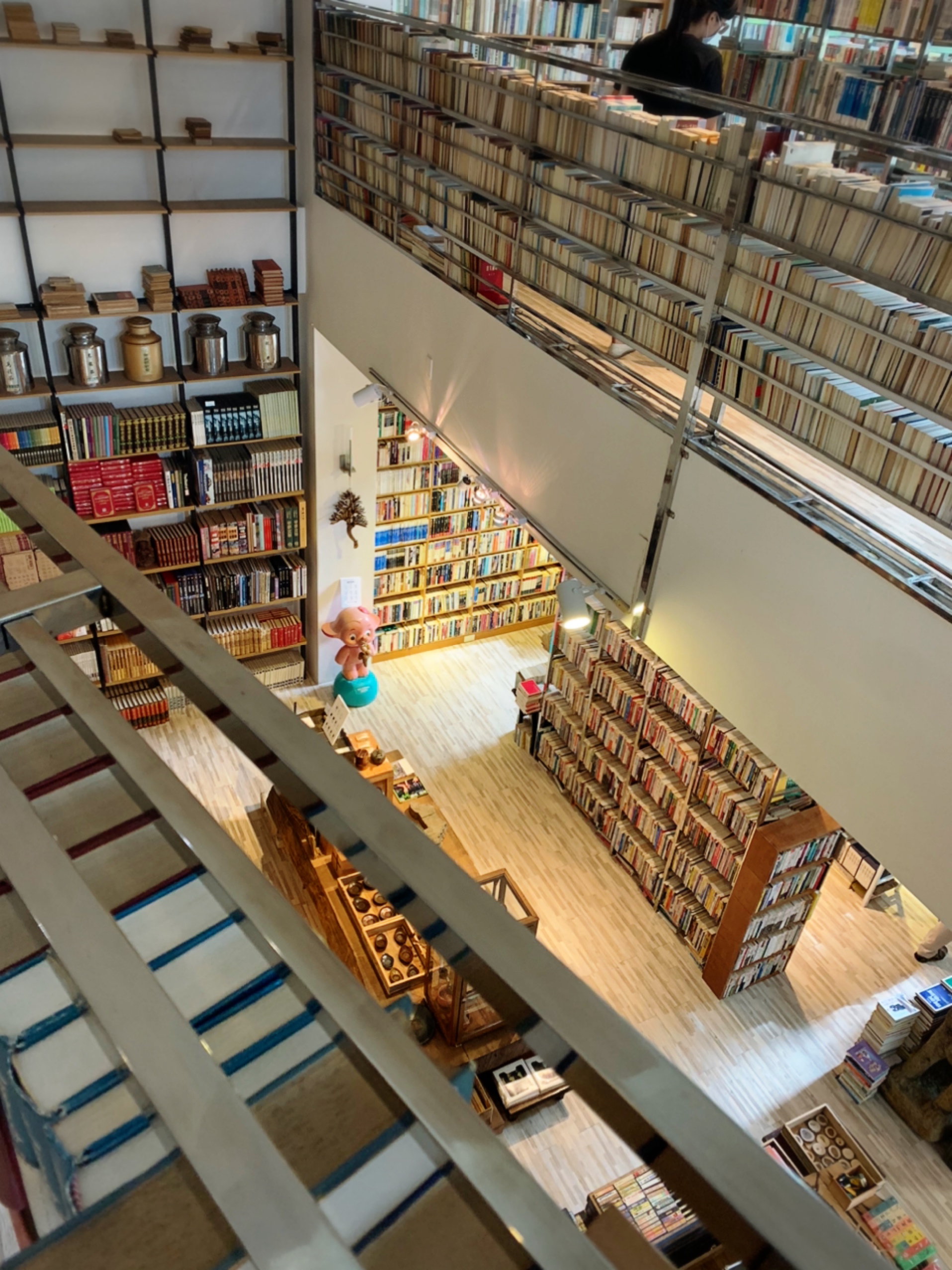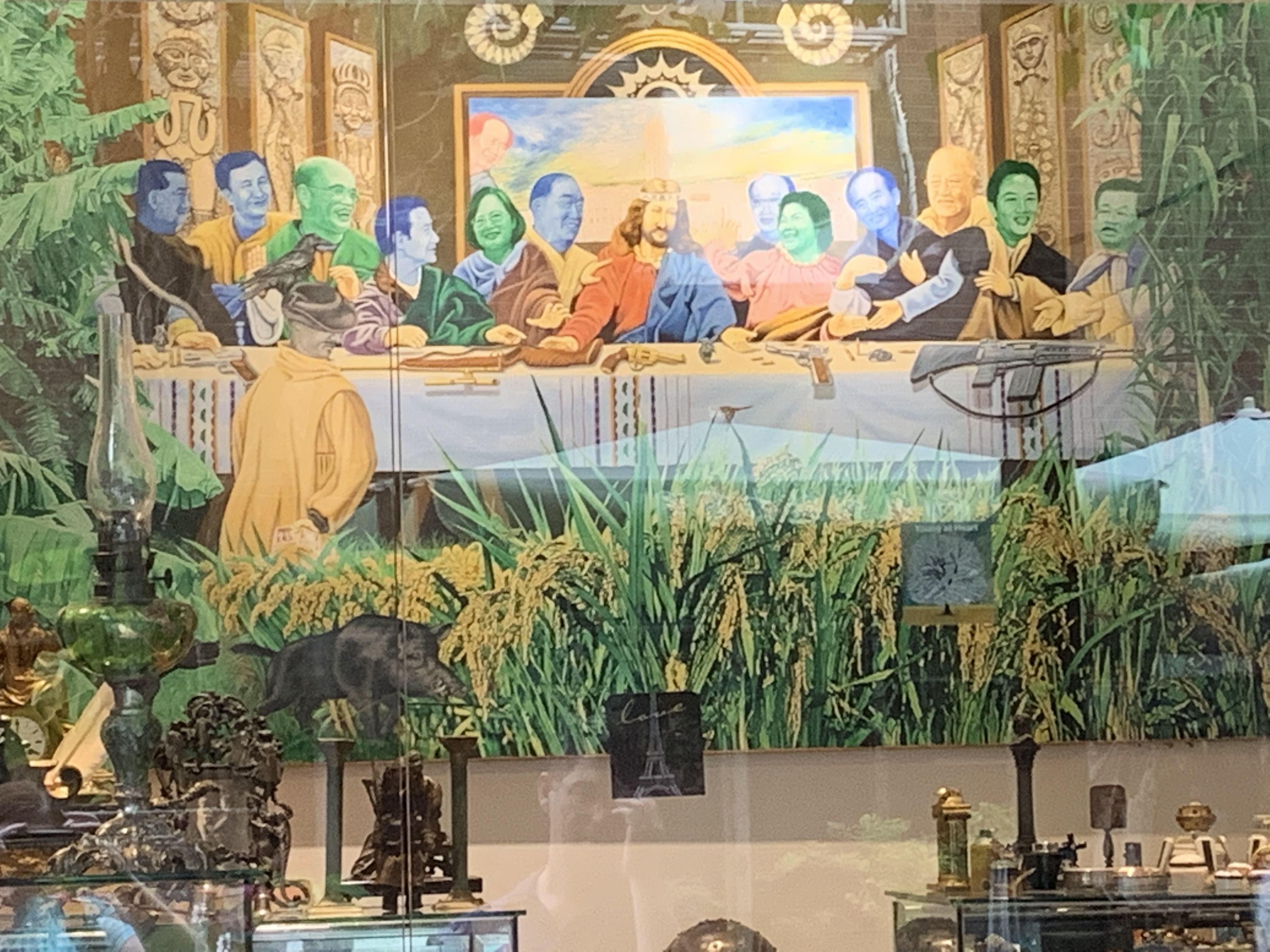
The good news: I submitted a draft of my dissertation last week, so I'm close to the finish line.
The still good but not as great news: while it seems I've done a good job, there are still quite a few revisions I need to make, which means Lao Ren Cha's hiatus will continue for now. I'm hoping for more guest posts in the interim (and beyond).
Because I couldn't do anything with the dissertation last week, we took a much-needed break and headed to Tainan. Of course we ended up there during a severe heatwave that even southerners were calling unprecedented, and ended up spending the bulk of the middle of our days seeking indoor refuge.
I don't have much to say about central Tainan as I was there to relax, not to 'be a traveler' per se. But we did do two new things that are worth writing about: we went to the beach on Yuguang Island (魚光島) and visited a massive secondhand bookstore with funky vintage section.
Compared to the paradise beaches scattered across Southeast Asia, Yuguang doesn't particularly stand out. But it has a lot going for it, as Taiwanese beaches go. The greenery backing it isn't particularly beautiful and the sand is dun-colored, not golden, white or any of the more interesting colors. There is no shade whatsoever and the sand gets very hot, so consider bringing a beach umbrella.

First, it's fairly undeveloped: there's a parking lot which includes a restroom, faucets for rinsing off and a changing room, but the beach itself is backed by green scrub, not buildings, and it's set back from the road. The only thing on the beach is a small campsite to one side. There's a small local food stand along the road with a hose that customers can use to rinse off which has basic food (think barbecued Taiwanese sausages) and cold drinks, and a few tables.
Second, it's within a short drive of central Tainan. The only downside is that you do have to drive -- there's no bus out here. We went with a friend who had a car. That said, it's close enough to town that a taxi there wouldn't be prohibitively expensive and one could probably be called to pick you up.
Third, it's clean and safe. There's relatively little litter on the beach given how close it is to the city, the water is clear (you can usually see your feet) and the waves are pleasant but not dangerous. It as a gradual slope so you can go out quite far. Further out, parasailing and surfing are possible. Be aware that there are no lifeguards, though there are some flotation devices.
Finally - and most importantly - there are no insane rules on where and when you can swim. Such regulations are easily the worst thing about Taiwanese beaches. Baishawan is so boxed in, it's like taking a bath with 500 other people. Fulong is backed by ugly buildings and an uglier bridge. Wai'ao has interesting black sand but is backed by a road, parking lot and ugly food court, and the lifeguards make you get out at 5pm for no good reason. Kenting is packed and dirty (though there's a beach further along, past Eluanbi, which is better at low tide). At Yuguang, you can swim where you like, for as long as you like, without feeling like you're being herded through a large and crowded bath rather than trying to have a nice swim in the ocean.

Because we had a car, when it got too hot around lunchtime, we left the beach and headed for Chou Family Shrimp Rolls (周氏蝦捲) in Anping (there's a branch in downtown Tainan but it doesn't have the same feel). It's hard to get shrimp rolls this good anywhere else - even my favorite spot in Taipei doesn't make them crispy like Chou's. There is a bus out here, so a car isn't strictly necessary.
Nancheng Books
台南市中西區慶中街68號
#68 Qingzhong Street, West Central District, Tainan
(near the Five Concubines Temple / 五妃廟)

The next day, needing a respite from the heat, I found a secondhand bookstore while trawling Google Maps looking for interesting local things to do. Nancheng Books (城南舊肆) is massive, and includes an eclectic, if poorly organized, English section. There's also a small vintage/antiques area, though some of the items are a bit pricey. Nancheng is in a modern glass building with lots of natural light -- the only thing it needs is a few chairs scattered here and there for readers who want to peruse books they might buy. They only take cash.
It's near the Five Concubines Temple, so if you're walking that way from the Confucius Temple, it's a good break for what is otherwise a long and generally unrewarding walk.
We did other things too, but nothing you've never heard of before. So, enjoy this totally weird tapestry in a shop on the pedestrian street across from the Confucius Temple (the one that starts at the stone archway).



